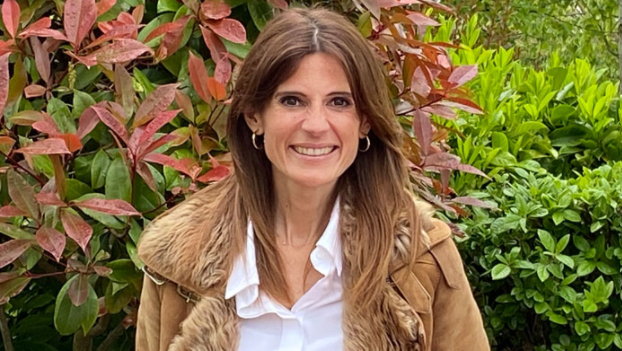A New Era in the Life of Law
Victoria Kent, the first woman member of the Madrid Bar, published a letter in the Bulletin of the Madrid Bar Association in 1925 under the title A New Era in the Life of Law. In her letter, she expressed her conviction about the renovating effect that the entry of women into the legal profession could have on customs and laws. In a particularly significant paragraph she stated:
“I believe that a new era is beginning in the life of the law. Until now we women have lived on the fringes of the law; we have been nourished by the crumbs of the law, so comprehensive and broad, so humane and progressive for men, but so mean and sad, so decayed and harsh for women; you yourselves recognize this, the noble and loyal companions who have cried out against injustice and lend yourselves to remedy it. I am sure that a new era is beginning. A new day is dawning behind the tangled and dour jungle of Law, a new day when the sun will shine for all”.
Today, almost 100 years later, the facts have corroborated her words and it can be affirmed that the presence of women in the different legal fields brings benefits to society as a whole. On the one hand, it makes it possible to make visible and provide answers to certain social issues that, if they are not brought to light by women themselves, go unnoticed. In this sense, more and more studies confirm that the presence of women in parliaments contributes to social improvements. On the other hand, the creation of support networks among women jurists themselves has served to share experiences and develop joint lines of action. Finally, because through their work they have managed to introduce important changes in the legal culture.
Let us dwell a little on each of these statements:
Attention to social issues
Various studies of U.S. jurisprudence have shown interesting results in this regard, because they reflect that when women are fairly represented in federal courts, those courts tend to be more aware of the diversity of the population’s problems. In 1983, J. Gottschall highlighted through a quantitative analysis of federal appellate court rulings that women are more sensitive to discrimination issues. Corroborating these assertions, S. Davis, S. Haire and D.R. Songer, in two separate articles, found that in appellate court appeals, female judges showed greater sensitivity than male judges when the victim was subjected to employment discrimination. Subsequent studies confirmed that if the Federal Court of Appeal judges were all male, there was less likelihood of a favorable ruling on a sex discrimination complaint; but the odds changed if the judges included a woman.
The presence of women in the courts of justice is a good measure so that society, composed of women and men, and to whom judicial decisions are addressed, has greater confidence that the court, having a greater representation of real society, understands the implications and problems of the real world. Today the data reflect that the presence of women in judicial life has improved the quality of justice: women jurists can interpret the law and show its application from another perspective. In this way, a better understanding of how best to achieve the purposes and effects intended by the law can be achieved.
Creation of support networks
In Spain, the work carried out by the first women jurists was woven under the umbrella of alliances and associations. The Juventud Universitaria Femenina -later the Asociación Universitaria Femenina-, constituted in 1920 and whose committee included Clara Campoamor, Victoria Kent and Matilde Huici, and the Lyceum Club (1926), among others, served as meeting points for many young Spanish university women. Clara Campoamor and Matilde Huici focused the objectives of the AUF on the demand of rights for women and children, such as the establishment of paternity, the reform of the Civil Code regarding the right of married women to enjoy and freely dispose of their salary. From the penal point of view, they demanded the abolition of prostitution. Their work in the AUF responded to a double objective: to contribute from the basis of their training in law to the improvement of the legal situation of women in the legal system and to advise those who needed it.
In 1971 the Spanish Association of Women Jurists (AEMJ) was created, under the presidency of María Telo Núñez, becoming the first grouping of these professionals in Spain. The AMJE specified among its aims: “the study of Law, especially that which directly affects women or the family; to promote the adaptation of legal norms to the present time, and the promotion of women, within their respective professions, and particularly those with degrees in Law”. After the AMJE, new associations of women jurists have been born, united by the idea of cooperation and help among their members.
Introducing changes in the legal culture
In recent years, both the General Council of Lawyers (CGA) and the General Council of the Judiciary (CGPJ) have created equality commissions to ensure equal treatment and opportunities among their members. In the case of the CGA, the main objective of the Commission is “the establishment and promotion of the principle of equality between women and men”.
The CGPJ expresses itself in similar terms when defining the purpose of its Equality Commission “to remove the deficit of balanced presence of women in the discretionary appointments made by the Council, in the teaching activities aimed at the judicial career and in the international relations of the Council. To achieve the legal objective of a balanced presence of 40%-60%. As well as to deepen the measures for reconciling professional and family life in the judicial career”. It has also introduced a series of rules aimed at avoiding the use of terms that discriminate against women.
The experience of the last one hundred years has been an eye-opener. It has made it clear that, since society is made up of women and men, the participation – and real representation – of women and men jurists is necessary to guarantee a law that takes into account the plurality of perspectives.

María Cruz Díaz de Terán Velasco
Professor of Philosophy of Law and Coordinator of the RedWinn (CYTED Program)





Commentaires récents